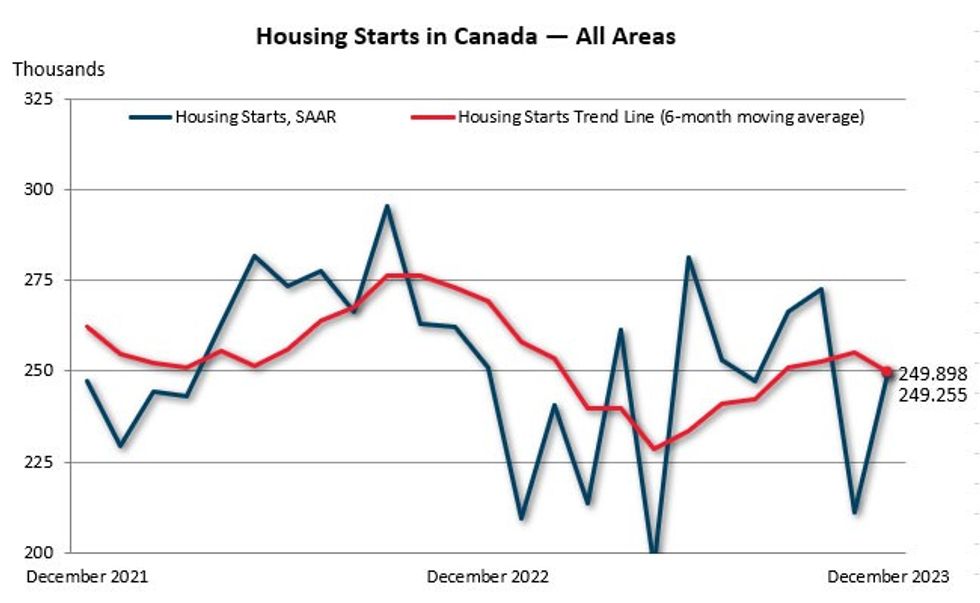December proved to be a strong month for Canadian housing starts, but it wasn’t enough to bring 2023’s level ahead of 2022’s curve.
New data from Canada Mortgage and Housing Corporation (CMHC) shows that the monthly seasonally adjusted annual rate (SAAR) of total starts jumped 18% to 249,255 units in December, after plunging 22% in November.
For urban centres specifically (those with populations of at least 10,000) starts increased 20% to 234,705 units, and that figure includes 191,463 multi-unit starts (up 26%) and 43,242 single-detached unit starts (down 2%).
Meanwhile, rural starts dropped down to 14,550 units.
For 2023 on the whole, CMHC says that starts across urban centres ended up 7% below 2022’s levels, with 223,513 units recorded. CMHC Chief Economist, Bob Dugan, attributes the overall decline to single-detached starts, which slipped 25% over the course of 2023. As well, he notes that tighter economic conditions pulled down multi-unit starts in the fourth quarter.
“The recent monthly multi-unit volatility is not surprising as we’re now starting to see 2023’s challenging borrowing conditions and labour shortages in the housing starts numbers,” Dugan also says.

Despite picking up in December, TD Economist Rishi Sondhi says that starts are on track to “trend lower” in the year to come due largely to the weaker resale and presale conditions that characterized 2023.
“That weak demand is probably going to start showing up this year, particularly in the condo space,” Sondhi tells STOREYS.
“That's not to say that starts are going to collapse; they’re still going to be quite elevated. We think that support will come from purpose-built rental construction, which has been a market that's been sort of on the rise quite significantly over time.”
Sondhi points to recent government programs that have removed at least some of the tax burden from purpose-built rental projects. The feds, for instance, announced the elimination of GST on new rental construction this past fall, and Ontario followed suit just a few months after that. Sondhi says that these are the “big marquee measures” that will keep starts from dropping off sharply in the near term.
“And even the BC government is changing zoning regulations to allow multi-units to be built on land parcels that were previously zoned for single-detached. In other jurisdictions around the world when they've tried this, there's been success in increasing the housing stock. For example, in Minnesota and Auckland, New Zealand,” he says.
“So that's another example of government policy that will support starts and keep them from collapsing even though we anticipate a downtrend.”





















